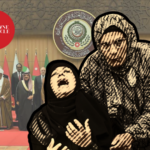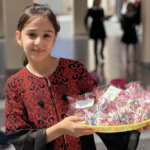Iraqi Christians Are Already at Home
By Ramzy Baroud
On Sunday, October 31, when a group of militants seized a church in Baghdad, killing and wounding scores of Iraqi Christians, it signaled yet another episode of unimaginable horror in the country since the US invasion of March 2003. Every group of Iraqis has faced terrible devastation as a result of this war, the magnitude of which is only now beginning to be discovered.
True, the situation in Iraq was difficult prior to the war. Having visited the country in 1999, I can testify to this. But the hardship suffered by many Iraqis, especially political dissidents, was in some way typical characteristic of authoritarian and dictatorial regimes. Iraq could, at that time, be easily contrasted with other countries living under similar hardships. But what has happened since the war can barely be compared to any other country or any other wars since World War II. Even putting aside the devastating death toll, the sheer scale of internal displacement and forced emigration is terrifying. This is a nation that had more or less maintained a consistent level of demographic cohesion for many generations. It was this cohesion that made Iraq what it was.
Iraqi Christians communities had co-existed alongside their Muslim neighbors for hundreds of years. The churches of the two main Christian groups, the Assyrians and Chaldeans are dated back to the years A.D. 33 and 34 respectively. A recent editorial in an Arab newspaper was entitled “Arab Christians should feel at home.” As moving as the article was, the fact is, the fact remains that Arab Christians should not have to feel at home – they already are at home. Their roots dates back to the days of Jesus Christ, and since then they have maintained a unique identity and proud history under the most difficult of circumstances.
I recall a group of Iraqi children from a Chaldeans school dressed up in beautiful dark blue uniforms performing the morning nashids (songs) before going to class. They were so innocent and full of life. Their eyes spoke of promise and excitement about the future. I dread to imagine how many of these children were killed, wounded or forcefully displaced with their families, like millions of other Iraqis from all ethnic and religious backgrounds.
Today merely half of Iraq’s Christians are still living in the country, when compared to the 1987 census which listed 1.4 million Iraqi Christians. The number, following the most recent killings which resulted from Iraqi forces storming the church and exchanging fire with the kidnappers, is dwindling rapidly. The plight of Iraqi Christians seems very similar to that of Palestinian Christians, whose numbers have plummeted and continue to fall following the Israeli occupation of Jerusalem, the West Bank and Gaza in 1967. The Palestinian Christian Diaspora was a direct outcome of the Israeli occupation and the original takeover of historic Palestine in 1948. The Israeli government sees no difference between a Palestinian Christian and a Muslim.
But none of this was deemed worthy of discussion in much of the Western media, perhaps because it risked hurting the sensibility of the Israeli occupier. The troubling news coming from Iraq can now be manipulated by presenting the suffering of Christians as an offshoot of a larger conflict between Islamic militants and Christians communities in Iraq.
The fact is that Iraqi society has long been known for its tolerance and acceptance of minorities. There were days when no one used such references as Shai, Sunni and Christians; there one Iraq and one Iraqi people. This has completely changed, for part of the strategy following the invasion of Iraq was to emphasize and manipulate the ethnic and religious demarcation of the country, creating insurmountable divides. Without a centralized power to guide and channel the collective responses of the Iraqi people, all hell broke loose. Masked men with convenient militant names but no identities disappeared as quickly as they popped up to wreak havoc in the country. The communal trust that held together the fabric of the Iraqi society during the hardest of times dissolved. Utter chaos and mistrust took over, and the rest is history.
There is no question regarding the brutality and sheer wickedness of those who caused the recent murder of 52 Iraqi Christians, including a priest, in Baghdad’s main Roman Catholic church. But to confuse the issue as one between Muslims and Christians, or as a UPI report misleadingly put it – “Iraq’s Christians caught between majority Shiite and minority Sunni Muslims” – is a major injustice. It is also dangerous, for when such notions become acceptable, it enable foreign powers to justify their continued presence in Iraq on the premise that they are there to protect those ‘caught’ in the middle. In fact, for hundreds of years, every colonial power in the Middle East has used such logic to rationalize their violence and exploitation.
Indeed, there are many who are ready to use such tragedies to serve their political interests or to retrospectively validate their wanton action in Iraq. This arrogant mentality compelled Republican strategist Jack Burkman in an Aljazeera English program last May to describe the people of the Middle East as “a bunch of barbarians in the desert.”
Such hubris is further strengthened by such killings as the one that targeted Iraqi Christians. A US solider in Iraq, quoted on a recent Democracy Now program referred to Iraqi culture as a “culture of violence”, boasting that his country was trying to do something about this.
Where is the soul-searching and reflection that might ask what brought this ‘culture of violence’ to the surface? What will it take to see the “bunch of barbarians” as simply human beings who, like any other, are trying to survive, fend for their families and maintain an element of normality and dignity in their lives?
As for “Iraq’s Christians”, I must disagree with that depiction which is used widely in the media. They are not Iraq’s Christians, but Iraqi Christians. Their roots are as deep as the history of Mesopotamia, their history as rich as the fertile soil of Tigris and Euphrates. No matter how far their numbers may dwindle, like the rest of Iraqis of all backgrounds, they will remain Iraqis. And their return to their country is only a matter of time.
– Ramzy Baroud (www.ramzybaroud.net) is an internationally-syndicated columnist and the editor of PalestineChronicle.com. His latest book is My Father Was a Freedom Fighter: Gaza’s Untold Story (Pluto Press, London), now available on Amazon.com.



































0 Comments